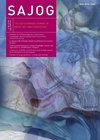Late termination of pregnancy for fetal anomalies: Experience at a tertiary-care hospital in South Africa
IF 0.4
Q4 OBSTETRICS & GYNECOLOGY
引用次数: 0
Abstract
Background. Early diagnosis and appropriate management of congenital anomalies can help prevent neonatal morbidity and mortality. Termination of pregnancy for severe congenital anomalies is permitted under South African law. Objective . To determine factors causing delayed diagnosis of lethal congenital abnormalities requiring late termination of pregnancy at Steve Biko Academic Hospital in Pretoria, South Africa. Methods. Medical records of pregnant women who presented with lethal fetal anomalies over a period of 7.5 years were analysed. Patients’ demographic profile, the interval from referral to feticide, gestational age at first scan and diagnosis, type of anomaly and feticide methods were considered. The cohort was divided in two groups based on timing of termination (i.e. earlier than 28 weeks and later than 28 weeks’ gestation) for statistical comparison. Results. The majority of women ( n =45; 78.9%) were younger than 35 years and had no chronic medical conditions or risk factors ( n =40; 70%). Although 30 women (52.6%) had been booked for antenatal examination early in their pregnancy, only three (5.2%) had a first-trimester scan. Mean time to referral was not significantly different between the women whose pregnancies terminated earlier than 28 weeks and those with a termination after 28 weeks ( p =0.671). Conclusion. A basic ultrasound scan in the second trimester is recommended for all pregnant women. Task shifting can be a viable option to provide this facility at primary and secondary health centres. A national registry should be established to document all late terminations for fetal anomalies.因胎儿异常而延迟终止妊娠:南非一家三级护理医院的经验
背景先天性畸形的早期诊断和适当管理有助于预防新生儿发病率和死亡率。南非法律允许因严重先天性畸形终止妊娠。目标。在南非比勒陀利亚的Steve Biko学术医院,确定导致需要延迟终止妊娠的致命先天性异常诊断延迟的因素。方法。对7.5年内出现致命胎儿畸形的孕妇的医疗记录进行了分析。考虑了患者的人口统计学特征、转诊至杀胎的间隔时间、首次扫描和诊断时的胎龄、异常类型和杀胎方法。根据终止妊娠的时间(即妊娠期早于28周和晚于28周),将队列分为两组进行统计比较。结果。大多数女性(n=45;78.9%)年龄小于35岁,没有慢性疾病或危险因素(n=40;70%)。尽管有30名妇女(52.6%)在怀孕早期预约了产前检查,但只有3名妇女(5.2%)进行了孕早期扫描。妊娠提前28周终止的妇女和28周后终止妊娠的妇女的平均转诊时间没有显著差异(p=0.671)。结论。建议所有孕妇在孕中期进行基本的超声波扫描。在初级和中级卫生中心提供这种设施时,任务转移可能是一个可行的选择。应建立一个国家登记处,记录所有因胎儿异常而延迟终止妊娠的情况。
本文章由计算机程序翻译,如有差异,请以英文原文为准。
求助全文
约1分钟内获得全文
求助全文
来源期刊

South African Journal of Obstetrics and Gynaecology
Medicine-Obstetrics and Gynecology
CiteScore
0.40
自引率
0.00%
发文量
5
审稿时长
15 weeks
期刊介绍:
The SAJOG is a tri-annual, general specialist obstetrics and gynaecology journal that publishes original, peer-reviewed work in all areas of obstetrics and gynaecology, including contraception, urogynaecology, fertility, oncology and clinical practice. The journal carries original research articles, editorials, clinical practice, personal opinion, South Africa health-related news, obituaries and general correspondence.
 求助内容:
求助内容: 应助结果提醒方式:
应助结果提醒方式:


